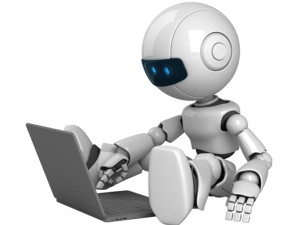
It seems some of the defendants in AfriForum's case may be bots or troll accounts.
This is according to Emma Smith, a candidate attorney at law firm Michalsons, who points out bots are not juristic persons and lack legal personhood and, therefore, cannot be prosecuted.
Last week, civil rights organisation AfriForum laid criminal charges against 100 individuals, who it says posted messages containing hate speech, racism and incitement of violence on social media platforms.
As an example, a Twitterbot is a type of bot software that controls a Twitter account via the Twitter API. The bot software may autonomously perform actions such as tweeting, retweeting, liking, following, unfollowing, or direct messaging other accounts.
For instance, @assbott is a bot that tweeted Donald Trump and was often the first reply. When replied to, Assbott tweets random phrases at people, leading some to believe he was conversing with them.
Twitterbots are estimated to create approximately 24% of tweets that are on Twitter.
"Bots or Internet bots are software applications that run automated scripts over the Internet. They usually perform simple and repetitive tasks. As an example, a bot is a Web crawler or spider that retrieves and analyses millions of files of the Web servers," says Smith.
She points out some bots can 'communicate' in that they create content through pattern matching from user-generated content, such as creating a phrase or comment that is a conglomerate of content from Twitter on a particular issue.
"Some servers will try to control bot behaviour by implementing robots.txt files which outline rules for bots and any bot not following those rules can, in theory, be denied access. As a general point, often the 'names' of the bots on social media and the content make it clear they are not real people," says Smith.
According to Michalsons, robot law is an emerging specialist field of law and robot lawyers focus on the laws of robots or robotics.
The law firm points out a legal framework is required to deal with this new type of 'person'. "First, we had natural persons (or humans), then we have legal persons (like companies or trusts). Now we have a new kind of person - the robot (or robot person).
"We have laws that apply to people, and laws (like the Companies Act) that recognise companies are separate legal entities that can act on their own. We need that same legal framework for robots (maybe called the Robots Act)."
Nonetheless, Smith points out the potential avenues for people who wish to sue someone for a social media post are: suing them for defamation (civil action), crimen injuria (a criminal action) or hate speech under the Promotion of Equality and Prevention of Unfair Discrimination Act.
"AfriForum previously used this Act for their case relating to the 'Kill die Boer' political song - AfriForum and Another v Malema and Others (2011) in the Equality Court."
Share